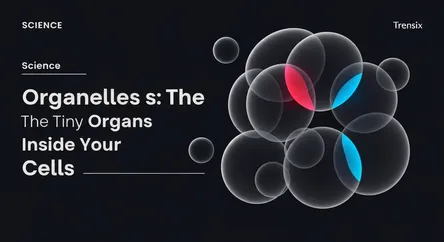Science
Organelles: The Tiny Organs Inside Your Cells

Discover organelles, the specialized structures inside our cells that are crucial for life and whose dysfunction is linked to many common diseases.
What is it?
An organelle is a specialized structure within a cell that performs a specific job, much like an organ does in the body. These "tiny organs" are enclosed within their own membranes and float in the cytoplasm. Each one has a unique role essential for the cell's survival. Key examples include the nucleus, which stores genetic information; the mitochondria, which produce energy; and ribosomes, which assemble proteins. Other organelles like the Golgi apparatus modify and transport proteins, while lysosomes act as the cell's recycling center, breaking down waste.
Why is it trending?
The study of organelles is constantly evolving with new technology. Recently, scientists discovered a previously unknown organelle named the "hemifusome" using advanced 3D imaging techniques. This structure appears to play a crucial role in cellular recycling by helping to sort and process materials within the cell. Such discoveries are significant because they reveal new, fundamental steps in cellular processes that were previously unknown, opening up new avenues for biological research.
How does it affect people?
The health of our organelles is directly linked to our overall health. When organelles don't function correctly, it can lead to a variety of diseases. For example, mitochondrial dysfunction is associated with metabolic disorders and neurodegenerative conditions like Parkinson's disease. The disruption of communication between organelles has been linked to cardiovascular diseases and cancer. Understanding how these tiny structures work and what happens when they fail is critical for developing targeted treatments for a wide range of genetic and acquired diseases.